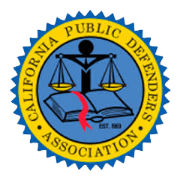
Have you ever thought about giving yourself a fresh start by wiping your criminal record clean? The concept might seem daunting, but understanding the Expungement Eligibility Criteria is your first step towards freedom. This isn’t just about erasing past mistakes; it’s an opportunity to rebuild and offer yourself a second chance at life without the shadow of a conviction hanging over you. But here’s the kicker – not everyone qualifies for expungement, and there are specific steps involved that you need to get right.
Table Of Contents:
- What Is Expungement?
- Eligibility for Expungement
- The Expungement Process
- Drug Possession Offenses and Expungement
- Resources for Expunging Records
- Conclusion
What Is Expungement?
Expungement is a legal process that can erase your criminal record. It’s like hitting the reset button on your past mistakes. When you get an expungement, it’s as if the offense never happened in the eyes of the law. Your criminal record is wiped clean, giving you a fresh start.
Expungement vs. Record Sealing
Expungement and record sealing are similar, but not quite the same. Expungement completely erases the criminal record, treating it as if it never existed. Record sealing, on the other hand, just prevents the general public from accessing the record. The record still exists though, and can be accessed by law enforcement or court order.
Expungement vs. Pardon
An expungement is different from a pardon too. A pardon is the government forgiving a crime and restoring rights lost due to the conviction. But it doesn’t erase or seal the conviction from your criminal record like an expungement does. With an expungement, you get a clean slate. It’s like the offense never even happened.
Eligibility for Expungement
Not everyone with a criminal record is eligible for expungement. There are certain requirements you have to meet.
Misdemeanors
For a misdemeanor expungement, you usually need to meet these criteria:
- Enough time has passed since the case ended.
- You haven’t gotten into any more trouble with the law since then.
- You completed all the terms of your sentence, like probation or community service.
Felonies
The eligibility requirements for felony expungement are similar to misdemeanors at first. You need to have:
- Finished your probation period.
- Stayed out of trouble since the conviction (no new charges or cases pending).
Exceptions and Disqualifications for Felony Expungement
Most states have some limits on what offenses qualify for expungement though. Some only allow expungement for arrests and misdemeanors, not felonies. Others have a list of offenses that are never eligible, like violent crimes, sex offenses, or DUIs. The more serious the felony, the less likely you’ll be able to get it expunged. Each state has its own rules.
The Expungement Process
If you’re eligible for expungement, you’ll need to go through the legal process to get your record cleared. The first step is to talk to a lawyer. They can look at your case and tell you if you meet the eligibility requirements. If you do, they can help you fill out and submit all the necessary paperwork to start the expungement process.
When Can I Apply for Expungement?
Most states make you wait a certain amount of time after completing your sentence before you can apply for expungement. It could be anywhere from 1-10 years, depending on the offense. And you have to stay out of trouble that whole time.
Will an Expungement Erase My Record?
If the judge grants your expungement, then yes – your record for that offense will be erased. The judge will look carefully at all the details of your case. They’ll consider the circumstances and whether expunging your record is in the interest of justice. If they give you the expungement, it will be like that offense never happened legally. Your record will be clean.
Drug Possession Offenses and Expungement
Drug possession is a common criminal offense. Many people wonder if these types of charges can be expunged from their record. Whether you can get a drug possession offense expunged depends on the details of your case and the laws of your state. Simple possession charges are more likely to be eligible than drug trafficking or distribution offenses. It also matters if it was a misdemeanor or felony possession charge.
Reasons for Denial for Drug Possession Offenses
Even if your drug possession offense meets the basic eligibility requirements for expungement, there are reasons your petition could still be denied. Some reasons for denial might include:
- Not enough time has passed since you completed your sentence.
- You have other criminal charges on your record.
- You didn’t complete drug treatment or other court-ordered programs.
- The judge doesn’t believe expungement is in the interest of justice in your case.
Time Periods for Drug Possession Offenses
Most states have waiting periods before you can apply for expungement of a drug possession offense. The time period usually depends on:
- If it was a misdemeanor or felony drug charge.
- If you’ve completed all terms of your sentence.
- If you’ve stayed out of trouble since the conviction.
The waiting period for misdemeanor drug possession is often shorter than for felony possession. But it varies a lot by state.
Resources for Expunging Records
If you’re looking for help expunging your criminal record, there are resources available. Your state’s Bureau of Investigation or Department of Justice is a good place to start. They often have information about the expungement process and requirements in your area.
Criminal Identification (BCI)
The BCI or criminal records department in your state may also have resources and forms related to expungement. They can tell you how to get copies of your criminal records, which you’ll need for the expungement process.
Automatic and Petitioned Expungement Verification Application
Some states offer automatic expungement for certain offenses. There may be a verification application you can submit to see if you qualify. Otherwise, you’ll likely need to file a formal petition for expungement. The paperwork and process varies by state and county. Navigating the expungement process can be tricky. It’s helpful to speak with an attorney to make sure you’re eligible and that you’re filling out all the forms correctly. They can guide you through the whole process.
Expungement erases your criminal record, giving you a fresh start. But not all offenses are eligible, and the process varies by state. Talk to a lawyer to see if you qualify and get help with the paperwork.
Conclusion
In wrapping up our journey through the thicket of Expungement Eligibility Criteria, we’ve seen that while hurdles exist, crossing them isn’t impossible. It’s clear now more than ever that having a blot on your record doesn’t mean carrying it for eternity. Armed with knowledge and determination, making those records vanish into thin air (legally) is within reach – all it takes is patience and following due process meticulously.
The road might be long, yes; filled with paperwork and perhaps moments of doubt but remember – every step taken brings you closer to regaining control over your narrative. So take heart! With careful planning and maybe some expert help along the way, rewriting history has never been more attainable.




